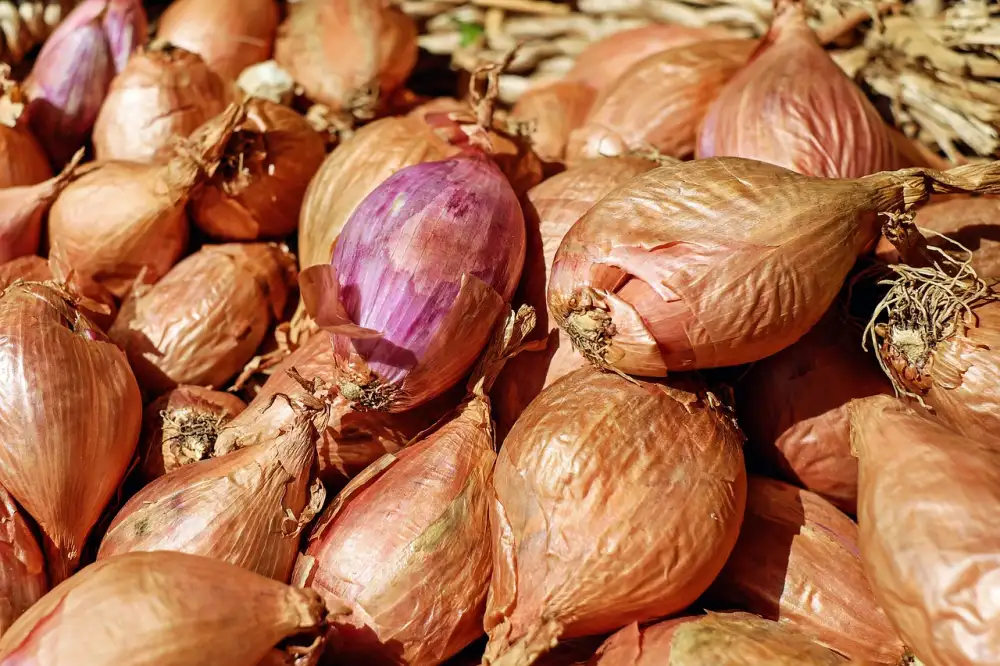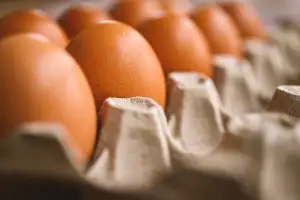Deliciously Savory: Unveiling the Best Shallot Substitutes for Your Culinary Creations

Shallots, with their delicate flavor and subtle sweetness, have long been a staple in the culinary world. These small bulbs, known for their mild onion-like taste, add depth and complexity to a wide range of dishes. However, there are times when you may find yourself without shallots in your pantry. Fear not! In this article, we will explore the best shallot substitutes that can be used to create equally delicious and savory culinary creations. Whether you're looking to enhance the flavors of your sauces, soups, or stir-fries, these alternatives will surely satisfy your taste buds. So let's dive in and discover the wonderful world of shallot substitutes!
Why substitute shallots?
Why substitute shallots? Shallots are a versatile ingredient known for their unique flavor and delicate sweetness. However, there may be times when you find yourself without shallots in your pantry or simply want to experiment with different flavors. That's where shallot substitutes come in handy. By using alternative ingredients, you can still achieve depth and complexity in your dishes while adding a distinct twist to your culinary creations. Let's explore some of the best substitutes for shallots that will surely elevate your cooking game.
Alternatives to shallots
Alternatives to shallots include onion, garlic, scallions, leeks, and chives. Onion is a versatile substitute that provides a similar flavor profile to shallots. It can be used in equal amounts or adjusted to taste. Garlic, with its pungent and slightly sweet taste, can also be used as a substitute for shallots. Scallions offer a milder flavor but still provide a hint of onion-like taste. Leeks have a mild and sweet flavor that works well in dishes where shallots are called for. Chives, with their delicate onion-like flavor, make an excellent substitute when used in moderation. These alternatives can be easily incorporated into your recipes while maintaining the desired savory taste.
Onion
Onion, a kitchen staple, is the most common substitute for shallots. It belongs to the same family as shallots and shares a similar flavor profile. While shallots have a milder and sweeter taste, onions offer a stronger and more pungent flavor. When using onions as a substitute, it's important to consider their size. Since they are larger than shallots, you may need to use less onion in your recipes. Additionally, sautéing or caramelizing onions can help mellow their flavor and mimic the sweetness of shallots. Overall, onions are a versatile alternative that can add depth and complexity to your dishes when shallots are not available.
Garlic
Garlic, with its pungent and distinct flavor, is a fantastic substitute for shallots in many recipes. It belongs to the same family as shallots and onions, making it an ideal alternative. The strong and savory taste of garlic can add depth to your dishes just like shallots. However, keep in mind that garlic has a more intense flavor, so you may want to use it sparingly if you're not a fan of strong garlic taste. To substitute shallots with garlic, simply mince or finely chop the cloves and use them in the same quantity as you would use shallots. Whether sautéed or roasted, garlic will bring a deliciously savory element to your culinary creations.
Scallions
Scallions, also known as green onions or spring onions, are a fantastic substitute for shallots in your culinary creations. These slender and mild-tasting vegetables belong to the same family as shallots, making them an excellent alternative. Scallions have a delicate onion flavor with a hint of garlic, which can add depth and complexity to your dishes.
To use scallions as a shallot substitute, you'll want to use both the white and green parts of the vegetable. The white part provides a milder onion flavor, while the green part adds freshness and color. Chop the scallions finely to mimic the texture of minced shallots.
In recipes that call for cooked shallots, sautéed scallions can be used instead. Heat some oil or butter in a pan and cook the chopped scallions until they become translucent and slightly caramelized. This will release their flavors and create a delicious base for your dish.
For raw preparations like salads or salsas, thinly slice the scallions and toss them in with other ingredients. Their crisp texture and mild flavor will complement the other components perfectly.
Scallions can be used as a one-to-one replacement for shallots in most recipes. However, keep in mind that their taste is slightly different, so adjust the quantity according to your preference.
Next time you find yourself without shallots in your pantry, reach for scallions instead. They offer a similar flavor profile and can elevate your dishes with their unique taste. Experiment with scallions as a shallot substitute, and you'll discover new dimensions of savory goodness in your culinary creations.
Leeks
Leeks, with their mild and sweet flavor, make an excellent substitute for shallots in many recipes. These long and slender vegetables belong to the same family as onions and garlic, but they have a milder taste that adds a subtle depth to dishes.
To use leeks as a shallot substitute, start by trimming off the dark green tops and the root end. Slice the leek lengthwise and rinse it under cold water to remove any dirt or sand that may be trapped between the layers. Then, chop the white and light green parts of the leek finely.
When sautéing leeks as a replacement for shallots, cook them over medium heat until they become soft and translucent. The gentle sweetness of leeks will enhance the flavors in your dish without overpowering them.
Leeks work particularly well in soups, stews, risottos, and sauces where their delicate flavor can shine through. They also add a lovely texture when used as a topping for salads or incorporated into quiches and frittatas.
Next time you find yourself without shallots in your pantry, reach for leeks as a flavorful alternative. Their subtle taste will bring depth to your culinary creations while adding a touch of elegance to your dishes.
Chives
Chives, with their delicate and mild flavor, make an excellent substitute for shallots in many recipes. These slender green herbs belong to the same family as onions and garlic, but offer a more subtle taste. Chives can be used both raw and cooked, adding a touch of freshness to your dishes. When using chives as a shallot substitute, it is important to note that their flavor is milder, so you may need to use a larger quantity to achieve the desired taste. Chop the chives finely and sprinkle them over salads, soups, or scrambled eggs for a burst of flavor. They also work well as a garnish for creamy dips or mashed potatoes. Don't forget to add them towards the end of cooking to preserve their delicate taste. With their vibrant green color and delicate onion-like flavor, chives are an excellent option when looking for a shallot substitute that adds both taste and visual appeal to your culinary creations.
How to use the substitutes
When using onion as a substitute for shallots, simply chop it finely and use it in the same quantities as you would use shallots in your recipes. The flavor may be slightly stronger, so adjust accordingly.
Garlic can also be used as a substitute for shallots. Mince the garlic cloves and use about half the amount of what you would have used for shallots. Keep in mind that garlic has a more pungent flavor, so be cautious not to overpower your dish.
Scallions are another great alternative to shallots. Slice both the white and green parts of scallions and use them in equal amounts as you would have used shallots. The taste will be milder, but it will still add a nice onion-like flavor to your dishes.
Leeks can be substituted for shallots by slicing them thinly and using them in the same quantities. Leeks have a sweeter and milder flavor compared to shallots, so they work well in dishes where you want a subtle onion taste.
Chives can also provide a similar flavor profile to shallots. Finely chop chives and use about three times the amount of what you would have used for shallots. Chives have a delicate taste, so they are best added towards the end of cooking or as a garnish.
Remember, when substituting any ingredient, it's important to consider its flavor intensity and adjust accordingly to achieve the desired taste in your culinary creations. Experiment with these alternatives and discover new flavors while still enjoying deliciously savory dishes!
In conclusion, while shallots are a fantastic ingredient to have in your kitchen, there are several alternatives that can be used to achieve similar flavors and textures in your culinary creations. Whether you opt for the pungent taste of onions, the robustness of garlic, the mildness of scallions, the earthiness of leeks, or the delicate flavor of chives, each substitute brings its own unique twist to your dishes. Experiment with these options and discover which one best suits your taste preferences and recipes. So don't fret if you run out of shallots - there are plenty of delicious substitutes waiting to be explored!
Published: 03. 12. 2023
Category: Recipes



